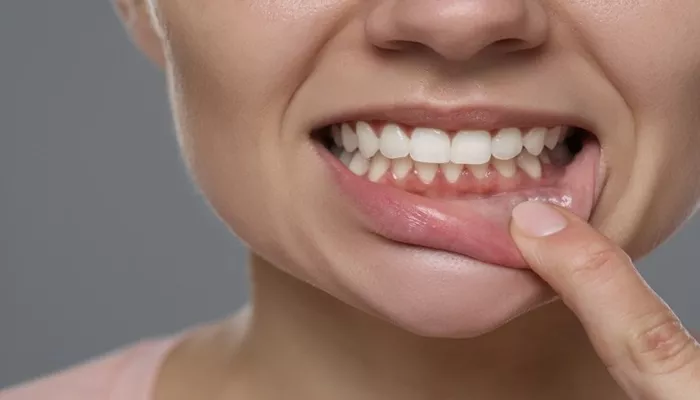A recent study has found that a blend of propolis and mangosteen extract, known as PMEC, can help reduce gingivitis by altering inflammatory biomarkers. The research, published in the journal Nutrients, involved 104 patients with gingivitis over an eight-week period. The primary focus was on changes in inflammatory biomarkers found in gingival crevicular fluid (GCF).
Researchers from Korea concluded that “PMEC consumption can reduce gingival inflammation and lessen periodontal tissue damage by modulating key inflammatory mediators in gingival tissue.”
Understanding Gingivitis
Gingivitis is an inflammatory condition of the gums that can damage the tissues supporting the teeth. It arises from an imbalance in the immune response to harmful biofilms in the mouth. This condition results from complex interactions between oral bacteria and immune cells, leading to the production of pro-inflammatory molecules such as cytokines, prostaglandins, and matrix metalloproteinases (MMPs).
These molecules contribute to tissue inflammation and bone loss.
Garcinia mangostana L., commonly known as mangosteen, and propolis, a resin produced by honeybees, are gaining attention for their potential benefits in promoting periodontal health. However, clinical evidence supporting their effectiveness remains limited. Mangosteen contains bioactive compounds like xanthones and flavonoids, known for their anti-inflammatory and antimicrobial properties. Propolis is rich in flavonoids and phenolic acids, which have antioxidant and immunomodulatory effects.
Research Methodology
Recent advancements in identifying periodontal disease biomarkers in GCF have shifted focus from traditional clinical measures, which mainly reflect past tissue destruction. Key biomarkers include interleukin-1 beta (IL-1B), prostaglandin E2 (PGE2), and enzymes like MMP-8 and MMP-9, which are linked to the severity and progression of gum disease.
In the study, participants took two capsules containing 194 mg of PMEC daily for eight weeks, while a control group received a placebo. Researchers collected GCF samples at four and eight weeks to analyze changes in inflammatory biomarkers.
Key Findings
The results showed that the PMEC group experienced a significant reduction in all measured GCF biomarkers compared to the placebo group at the eight-week mark. This included notable decreases in IL-1B, PGE2, MMP-8, and MMP-9 levels from baseline measurements.
The authors emphasized that the most significant outcome was the substantial reduction in GCF biomarkers observed in the PMEC group.
“These biomarkers are well-established indicators of periodontal inflammation and tissue destruction,” they noted. “The consistent downregulation of these mediators suggests that PMEC may have a strong anti-inflammatory effect in the periodontal environment.”
Cautions And Future Research
Despite the promising results, the authors cautioned that the potential of PMEC should be interpreted carefully due to the study’s short duration and small sample size. They stressed the need for further research to validate PMEC’s effectiveness as a natural and holistic approach to periodontal health.
In conclusion, the study highlights the potential of a propolis-mangosteen extract blend in improving gum health and reducing inflammation. As researchers continue to explore these natural remedies, they may pave the way for innovative treatments for gingivitis and other periodontal diseases.

